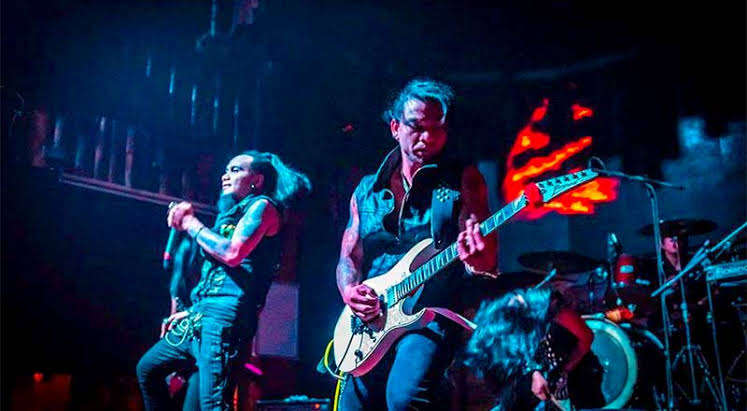
The actor and writer/director of A Real Pain discusses his Polish heritage and the tricky prospect of filming scenes for a comedy drama in a concentration camp. The post Jesse Eisenberg: ‘Is our modern pain valid?’ appeared first on Little White Lies.
A Real Pain, written and directed by Jesse Eisenberg, follows David (Eisenberg) and Benji (Kieran Culkin), making their way round Poland on a tour in honour of their recently departed grandmother. The bickering cousins with an odd couple dynamic visit Majdanek concentration camp as well as the childhood home of their beloved ancestor, a Holocaust survivor, in a desperate bid to feel something.
My own grandfather survived Auschwitz and, after he died on his 93rd birthday in early 2023, my mother and I travelled to Poland to see the apartment of his youth, the place he lived until history had other ideas. I went to Majdanek and other camps with friends and family on an organised tour in 2019. When I told him all this, Eisenberg spent the first few minutes of our time together peppering me with questions and googling my grandfather. He was fidgety and inquisitive, seemingly keener to talk about my family than his film. In truth, there isn’t much that separates the two things.
I know you’ve been trying to sort Polish citizenship in recent years – did that lead to A Real Pain?
I became really interested in my family’s Polish history when I was 18-years-old. I became interested because I had started to become close to my dad’s aunt Doris (who we call Grandma Dory in the movie). From the time I was 18 to 36 I saw her every Thursday and I even lived with her for a period in my early 30s. She was a very close person to me and she lived to 107. She was born in Poland and left before the war but I became so obsessed with her history probably because I felt a certain lack of meaning in my life as I became a professional actor and became celebrated for something that didn’t feel worthy of celebration. I became interested in my past and the suffering of my ancestors to connect to something more real and meaningful.
Did you make a similar trip to the one shown in the film?
My wife and I went to Poland in 2008. Her family, like your grandfather, was from Lodz and we did the trip shown in the movie but not on a tour. I really felt this deep connection to the place. I stood outside the house my family lived in up until 1939 and felt the fluke of history that I’m American with this JanSport backpack and I’m not living inside these doors. We were in this city for much longer than we were in New York City. I was further interested in getting Polish citizenship when I met all these people who were not only helping with the movie but also preserving the memory of my family by working at concentration camps and memorialising Jewish history. In the town my family’s from, the town’s gynaecologist is also the Jewish genealogist–
It’s like a dyslexia joke.
I know, I know! He’s not Jewish but he knew more about my family than I did.
Did you go back to write the script?
No. I was so desperate to go back but it was Covid when I was writing and it just seemed like an impossible thing to tell my wife, “I’ve had this idea for a movie, I’m going to leave you for a week and go on a tour of Poland.” Especially when ninety percent of what I write doesn’t get produced. I ended up doing this really weird thing of getting brochures online for Holocaust tours and then using Google Street View and going street by street walking where the characters would go.
Which of the two main characters is closest to the person you were doing that trip in 2008?
I probably present to the world what David presents to the world.
You look a lot like him.
Exactly! But I was actually going to play Benji. I did that character in a play I wrote called The Spoils which played here in London. But the producer of this, Emma Stone, said I should not play an unhinged character while also trying to direct. It’s too much cognitive dissonance to try and reconcile on a set. I have elements of Benji in that I’m also a performer and at times I’m in control of groups but I’m much more self-conscious and self-aware than Benji is.
Kieran Culkin is perfect in the role but did you think about casting a Jewish actor?
Of course. The only reason I didn’t send the first ten pages I wrote to Kieran Culkin was because we thought a Jew should play this role. It was a very complex process where I was trying to mine my own feelings about representation and what I ultimately felt, after asking a lot of people, was that this is a movie that’s in my head about my family’s story. Who is best to illustrate this story in a way that’s closest to my reality? It’s Kieran Culkin.
You still took on a lead role. What was it like doing that as well as directing?
In some ways, really helpful. I could pace the scenes as I wanted to pace them and play things that would come across on screen if not the page. I understood the emotional stakes of my character in a way some readers didn’t even understand. In terms of a disadvantage, I barely watched the scenes. We had the option after every take to do another one or watch the take back. Almost without exception, I’d do another take. We didn’t have much time or money.
You chose not to deify the survivor in the story and I really related to that. My grandfather was an amazing man but I also saw the way he behaved when he was stuck in traffic. When we talk about six million, the key is to humanise rather than turn people into statistics. Were you conscious of that while writing?
My God. I just think about what it took to survive something like that. It requires a real tenacity. What does that look like in the quietness of regular, modern life? The characters in this movie are missing their grandmother and Benji in particular is really grieving her loss because she was the only one in the family who would set him straight. But she was not a saint and that probably speaks to you because it’s real. Sometimes people who’ve been through really horrible situations can be scary to little kids because they’ve had to toughen themselves up unfairly. The person who has been toughest with Benji is the only one he can feel love with.
And he’s felt suicidal since she died. Judaism puts such a large emphasis on being alive with the Book of Life, l’chaim, wishing someone a long life when they’ve lost a relative etc and that’s even more significant when you’re talking about the descendants of Holocaust survivors.
That’s the great irony of our modern pain. We talk about it more than previous generations and feel less of it. That’s something I wanted to explore but the counter irony is that sometimes when you have real suffering it provides meaning in a way this modern life can never do.
I’ve always found it strange to be called a third generation survivor. I didn’t survive anything. But then I read articles about generational trauma and wonder if I’m different because my grandfather survived Auschwitz. Were you deliberately attempting to grappled with this stuff?
I don’t think of generational trauma as this magical, epigenetic phenomenon. I think of it in very practical terms. If your grandparents went through something historically and epically unbearable, they were probably a stressed-out parent to your parents and your parents were probably stressed-out parents to you. With the movie I was just trying to pose the question – what pain is valid? Is our modern pain valid? Is my character’s treatable OCD valid when our grandparents survived the holocaust?
Growing up with this thing, I watched so many films and read so many books about the topic. But I was really moved to see someone do something from our kind of perspective. I’ve never seen that before.
That was exactly my goal. I’d never seen this movie. I’m obsessed with movies about this topic because it’s an impossible subject to understand and I watch movies in an attempt to get some little nugget or some truth. With this, I was trying to do something different with characters that are irreverent. It brought up all sorts of interesting questions like why are we travelling on a train to a concentration camp and sitting first class? It sheds light on an irony that people like you and me would feel whereas our parents’ generation might have a different perspective.
Sequences like that make you cringe but they’re relatable. I’ve read you’re a big fan of The Office and I feel like there’s something of that in here.
Oh my God, it’s the greatest. It’s that, it’s that. What they did, and they didn’t even get enough credit for, is that Ricky Gervais is playing this character that’s saying all the wrong things and you love him. How do you make that thing work? What’s great is that Kieran never pushes it too far and he remains lovable. He makes good arguments even when he’s being obnoxious. Throughout the film, he breaks people open because he is open himself.
How hard was it to get permission to film in a camp given this is a comedy drama?
It was the most interesting process I’ve ever been involved with. When we got Polish producers on board, they told me that to shoot the Majdanek concentration camp it would be a $1 million build. I said, “What do you mean a $1 million build?” They told me you can’t shoot in concentration camps; you have to build them. I said, “That’s weird, there’s somebody who knows how to build concentration camps?” That was a third of our budget so we couldn’t afford it. I reached out to anyone I’d ever met with a connection to the camps and got the word to Majdanek that it would be a reverential scene about a tour group at the camp now. Nobody would be running around dressed as a Nazi. Eventually I met the people there and we got along so well as they’re young academics who’ve devoted their lives to preserving the memory of yours and my families’ histories. By the end of the experience, we realised that on some level we were all trying to do the same thing – let people know what happened here.
The post Jesse Eisenberg: ‘Is our modern pain valid?’ appeared first on Little White Lies.
 The Brutalist review – gorgeous, capital-C Cinema
The Brutalist review – gorgeous, capital-C Cinema
 Eisenstein in Sacramento
Eisenstein in Sacramento
 Wolf Man review – a bit of a howler
Wolf Man review – a bit of a howler
 Here review – a forgiving and open mind is required for this one
Here review – a forgiving and open mind is required for this one
 The legacy of James Baldwin in cinema
The legacy of James Baldwin in cinema
 Emmanuelle review – anticlimactic and unerotic
Emmanuelle review – anticlimactic and unerotic
 Vermiglio review – a hushed yet effectively emotive drama
Vermiglio review – a hushed yet effectively emotive drama
 Played for laughs: how cinema still fails male sexual assault survivors
Played for laughs: how cinema still fails male sexual assault survivors
 Architecton review – taps into the short-order nature of modern construction
Architecton review – taps into the short-order nature of modern construction






